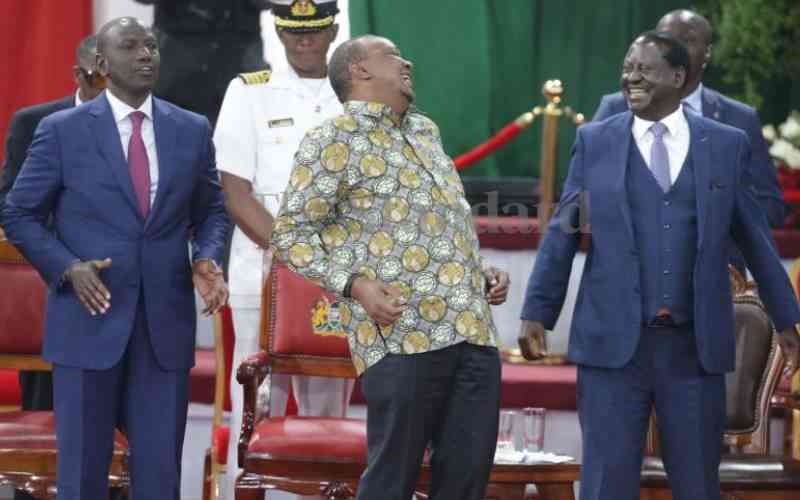×
The Standard e-Paper
Fearless, Trusted News

The proposal by National Assembly Majority Leader Kimani Ichungwa to amend the Constitution to establish the office of prime minister is the clearest sign that elements of the Building Bridges Initiative Bill will be resurrected.
President William Ruto and his lieutenants teamed up with a section of civil rights groups to oppose efforts by former President Uhuru Kenyatta and his handshake partner, ODM leader Raila Odinga, to 'mutilate the 2010 Constitution.'